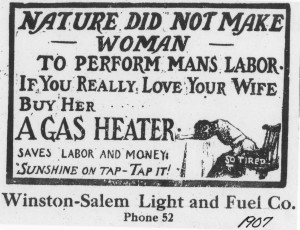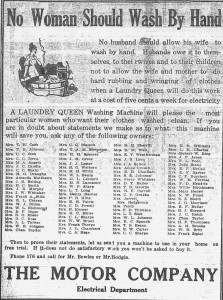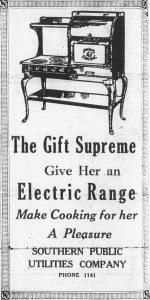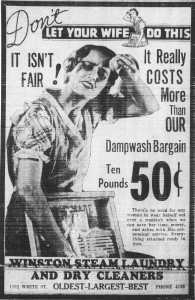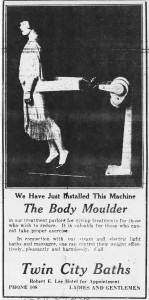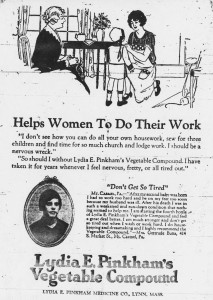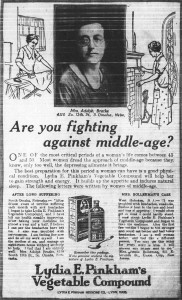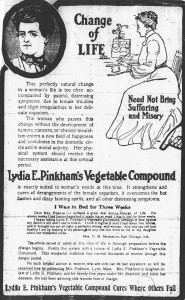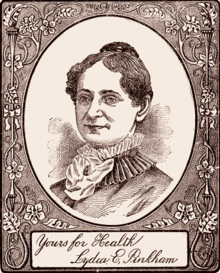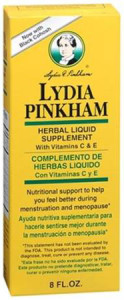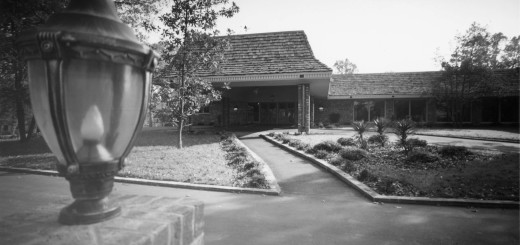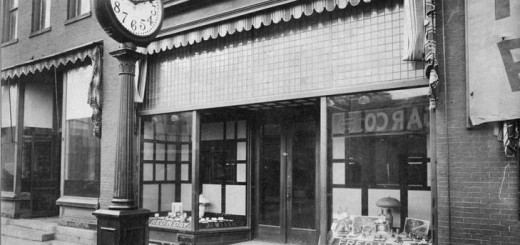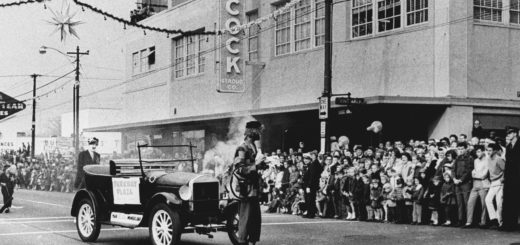Early 1900s newspaper advertisements often focused on modern appliances that were developed to make household chores easier on women. Here are a few of the advertisements that I’ve come across in the local newspapers that appeal to men to buy them for their wives. Notice the words “So tired” printed on the woman/chair in the above photo. This advertisement was printed in September 1907.
The above advertisement, printed in December 1919, says “No husband should allow his wife to wash by hand. Husbands owe it to themselves, their wives and to their children not to allow the wife and mother to do hard scrubbing and wringing of clothes when a Laundry Queen will do this work at a cost of five cents a week for electricity.” This advertisement also included a list of 93 women who could verify the claims of the Laundry Queen.
The first advertisement above was printed in May 1921, indicating that a new electric range was an acceptable gift, and would make cooking a pleasure. The second advertisement was printed in November 1935, with these words: “There’s no need for any woman to wear herself out over a washtub when we can save her time, money, and aches with this economical service. Everything returned ready to iron.” The advertisement was touting the Winston Steam Laundry and Dry Cleaners. Note that the clothes still had to be ironed.
The Robert E. Lee Hotel installed a machine to help women reduce, called The Body Moulder. In 1928, the machine was located in the Twin City Baths section of the hotel and was intended to be used “in connection with our steam and electric light baths and massages.”
Many advertisements for Lydia E. Pinkham’s Vegetable Compound contained testimonials from women who were overwhelmed with housework, sewing and caring for children, managing middle age, and the change of life.
The product shown above in the advertisements carried the name, “Lydia E. Pinkham’s Vegetable Compound.” The woman behind the product was Lydia Estes Pinkham (1819-1883). She was born in Massachusetts and she developed and marketed her herbal-alcoholic “women’s tonic” to generations of women seeking relief from “female complaints.” She mixed the tonic in her home at first, then moved the operation to a factory when the business outgrew her home. She started her business at a time when medical fees were expensive and medicines were rather suspect as to quality and safety.
Lydia marketed her product directly to women and she asked for and used testimonials in her ads from women who had medical issues and used her product. She even has her picture on the label of her product. The product ingredients have changed over the years, based on which ingredients were in or out of favor with the Food and Drug Administration.
Apparently the product continues to find favor with women today. It is sold in drug stores and variety stores, still sporting the image of its founder and chief marketer, Lydia Pinkham.
Stay tuned: Next historical post May 15th: Brookberry Farm

